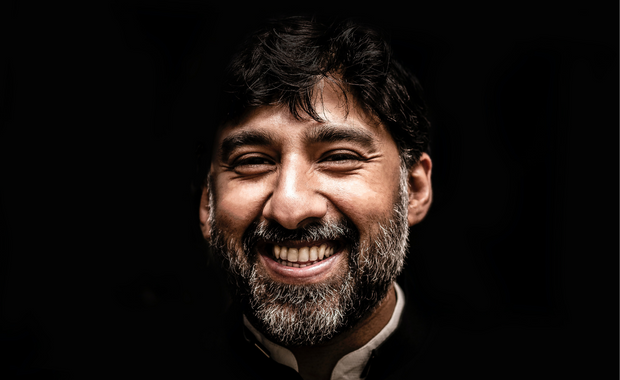Success Advice
Staying in Your Comfort Zone is the Key to Happiness
The truth is the comfort zone isn’t a bad thing. In fact, it’s actually THE KEY to finding lasting happiness.

It’s no secret we all want to be happy. The problem is no one really knows how to get there.
While there are all sorts of theories, methods, and modern-day hacks to answer the biggest of human questions, one thing most experts seem to agree on is that the comfort zone is a bad place. So bad in fact, they push us to “break the comfort zone” and “get uncomfortable” to force positive change and join them in the rush to lifelong happiness. Like cattle being prodded with a hot iron bar.
Besides the damaging suggestion we’re not already enough, these strategies rarely work because they fail to acknowledge who we really are. I’ll explain more on that in a minute, but the truth is the comfort zone isn’t a bad thing. In fact, it’s actually THE KEY to finding lasting happiness.
Just think about it logically for a second; our comfort zones are comfortable for a reason. By embracing this fundamental part of who we are and clearly understanding why it gives us such wonderful feelings of security, control, confidence and satisfaction, shouldn’t it be possible to find even more? On the other side of the coin, wouldn’t deliberately turning our back on such a core part of our being only cause more hardship and distress?
I reckon it does, and there’s a good reason why.
The problem with getting out of your comfort zone
Robert Greene, the American author of bestsellers such as The Art of Seduction and The Laws of Human Nature once said, “Think of yourself as an explorer. You cannot find anything new if you are unwilling to leave the shore.”
As an obvious supporter of “comfort zone is bad” thinking, he does have a point – you can’t find anything new unless you explore. But this famous quote and many others like it conveniently skip over the hard part of such advice.
Specifically, if we should all be explorers leaving our shores for new things to enrich us, fulfil us and make us happy, shouldn’t we make sure we’ve got a boat that’s equipped for the journey first? You wouldn’t jump into any old canoe you found washed up on the shore to begin such an important journey, would you? Of course not! You’d want to use the best ship possible; one you built yourself and had sailed a million times. One you knew like the back of your hand – every button and every lever – so you had the best chance possible of getting through whatever the unforgiving ocean could throw at it.
Before setting off, it’d also be a big help to know where you wanted to go, wouldn’t it? Sailing out into the deep blue yonder will no doubt get you somewhere different, but it’s kind of like playing darts blindfolded. How do you know where you end up will give you everything you’ve been looking for?
What is the comfort zone?
The answers to these two things – a strong, reliable ship and the right destination – can’t be found once you’ve already set sail. To have any chance of finding what you seek, they must be planned and built on the shore first using the sort of intimate self-knowledge and self-awareness only you can provide. The blueprint you end up with after going through such an exercise will define that beautiful, natural thing called your comfort zone.
It’s who you are and what you do all day, every day, probably without even knowing; the tools, skills, strategies, and quirks you’ve expertly honed over the course of your life to cope with the challenges it has thrown at you and uphold important values along the way.
Despite what the self-help crowd will tell you, this isn’t a weakness to be disregarded. It’s a power…it’s YOUR power!
I have a very simple equation for this power and it goes something like this:
Your Power = WHAT You Do + HOW You Do It
I can help you figure this out in more detail, but for now think of it as the unique value you offer the world. A unique value that’s been forged IN your comfort zone over the course of your life.
Using your comfort zone to find happiness
So now that you know what your comfort zone really is, what should you do with it? More importantly, how can it be used to find happiness?
Well, let’s return to the boat analogy once more. The fact that you’ve spent a little more time on the shore first understanding your unique value means you are in a much better position to be a SUCCESSFUL explorer rather than just another failed one.
By figuring out what it is you like doing and what it is you are good at, you have built a vessel that is fully prepared for the tests that lie ahead and can now pinpoint far-off places that promise greater riches.
Remember this: you’re not unhappy because of what you’re comfortable doing, you’re unhappy because you just haven’t found the right place to do it! The right job, the right hobby, the right cause – the right field of activity that rewards you for bringing whatever value you bring.
With that in mind, the more accurate wisdom we all should be embracing when it comes to our comfort zones is to STAY in them. Don’t ever get out of them! Stay in your comfort zone with what you do (the ship), and only change where you do it (the destination).
Why do we hate the comfort zone?
To finish off, I want to quickly touch on why the comfort zone has such a bad rep in the first place. For me, I reckon it’s because its real meaning – the one I’ve defined here – has been slowly hijacked over time to become synonymous with laziness.
If that’s what we’re talking about, then I couldn’t agree more. Laziness, boredom and lack of accountability are huge barriers to finding happiness in all its forms and, in these cases, the type of thinking by Robert Greene and all the other experts makes more sense. Trying to motivate people into action by throwing themselves at life and experiencing new things could give them the spark they need.
But, once again, this type of thing has little to do with your comfort zone. In fact, it completely ignores the comfort zone I’m talking about here and slaps a band-aid on the problem rather than fixing the root cause.
The reality is, staying inside your comfort zone is definitely not about laziness or taking the easy option. Going deep inside yourself and facing the true nature of who you are is hard – so hard that not many people ever do it. Most fall for the trap of jumping into the first canoe they see.
Business
The Simple Security Stack Every Online Business Needs
Most small businesses are exposed online without realising it. This simple protection stack keeps costs low and risks lower.

Running a business online brings speed and reach, but it also brings risk. Data moves fast. Payments travel across borders. Teams log in from homes, cafés, and airports. (more…)
Business
If Your Business Internet Keeps Letting You Down, Read This
From smoother operations to better security, dedicated internet access is quietly powering today’s high-performing businesses.

Today, a dependable internet service is the bedrock for uninterrupted business operations. Many organizations rely on stable online connections for communication, data transfer, and customer interaction. (more…)
Did You Know
How Skilled Migrants Are Building Successful Careers After Moving Countries
Behind every successful skilled migrant career is a mix of resilience, strategy, and navigating systems built for locals.

Moving to a new country for work is exciting, but it can also be unnerving. Skilled migrants leave behind familiar systems, networks, and support to pursue better job opportunities and a better future for their families. (more…)
-

 News2 weeks ago
News2 weeks agoBrandon Willington Builds 7-Figure Business by Ignoring Almost Everything
-

 Health & Fitness3 weeks ago
Health & Fitness3 weeks agoWhat Minimalism Actually Means for Your Wellness Choices
-

 Did You Know3 weeks ago
Did You Know3 weeks agoWhy Most Online Courses Fail and How to Fix Them
-

 Business3 weeks ago
Business3 weeks agoIf Your Business Internet Keeps Letting You Down, Read This
-

 Business1 week ago
Business1 week agoEntrepreneur’s Guide to Pay Stubs: Why Freelancers and Small Business Owners Need a Smart Generator
-

 Business6 days ago
Business6 days agoThe Simple Security Stack Every Online Business Needs
-

 Business5 days ago
Business5 days agoThe Salary Shift Giving UK Employers An Unexpected Edge
-

 Scale Your Business6 days ago
Scale Your Business6 days ago5 Real Ways to Grow Your User Base Fast



























